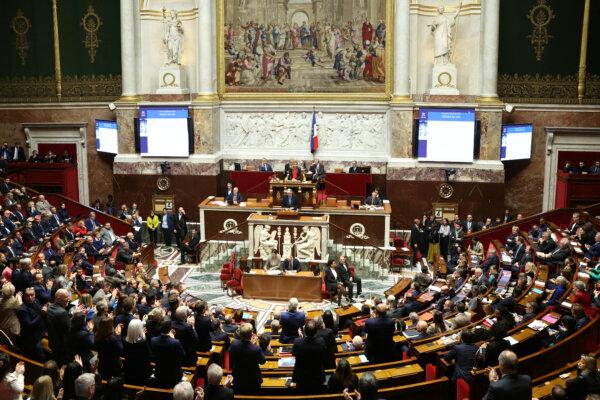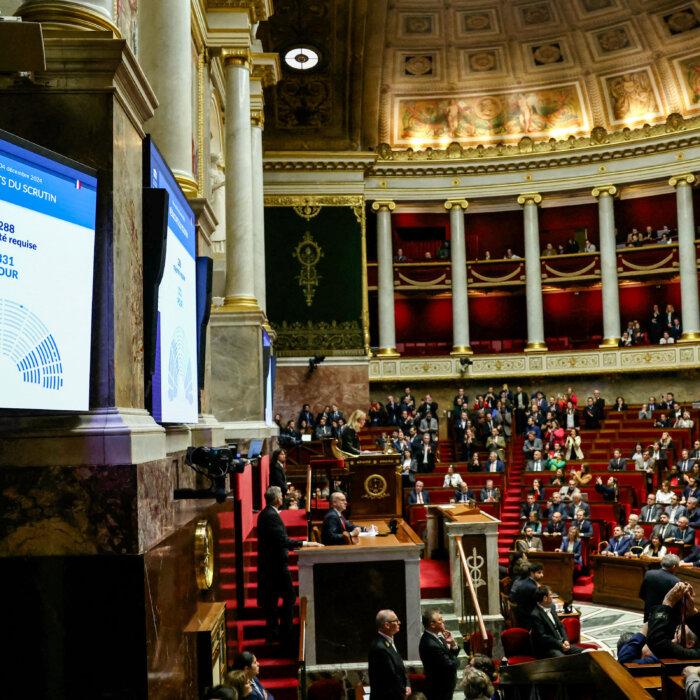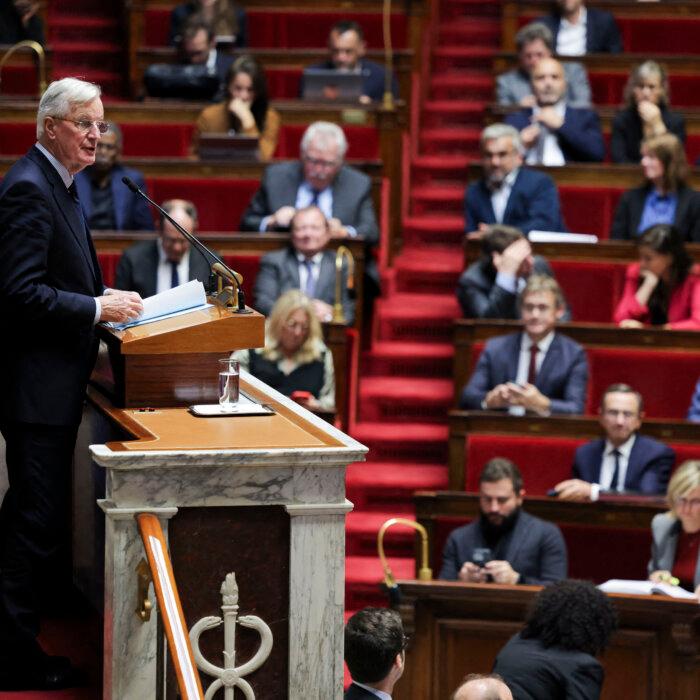France faces a political crisis as economic challenges and growing public unrest put President Emmanuel Macron under intense pressure, though he has vowed to remain in office.
‘Rare Political Uncertainty’
French media have reacted strongly to the unfolding situation.Macron addressed the nation in a televised speech at 8 p.m. on Thursday.
“The priority will be the budget,” Macron said.
Macron has vowed to remain in the Elysee Palace for the duration of his term, which runs until mid-2027, and he cannot be ousted by Parliament, though opposition on both his left and right flanks are already calling for his resignation.
“The mandate you have given me is for five years and I will fulfil it until the very end,” he said.

Polarization
Frank Furedi, executive director of MCC Brussels, told The Epoch Times that the crisis is exacerbated by the divided nature of France’s political landscape.“The really important thing to remember here is that the way the crisis is represented suggests there are three groups in Parliament, all of them roughly of the same strength,” he said.
“That’s not entirely accurate, though, because during the elections, the left united against the Rassemblement National [National Rally] and tried to minimize their electoral success.”
EU
The political uncertainty in France also comes at a critical moment for the European Union.With France and Germany—the EU’s two largest economies—facing significant political crises, and “living on borrowed money,”the EU’s internal weaknesses were being exposed, Furedi said.
“It exposes the internal weakness of this project, because actually, the EU and its project look much stronger than they really are,” he said.
He said the current crises in both France and Germany highlight the need to rethink the balance of power within the EU.
Deeply Divided
The uncertainty around the deeply divided French Parliament has also made it increasingly difficult for the government to pass the 2025 budget.The country’s debt is projected to soar to above 3 trillion euros ($3.17 trillion) by 2025, with public debt hovering at around 110 percent of GDP.
Though if nothing is done, France’s political situation will send a bad signal to financial markets, said the industry prior to Macron’s speech.
It said that Macron could adopt exceptional budget measures, bypassing parliament to avoid a U.S.-style government shutdown.
He said the “potential threat rather to the credit rating of France is something that will keep investors at bay.”







